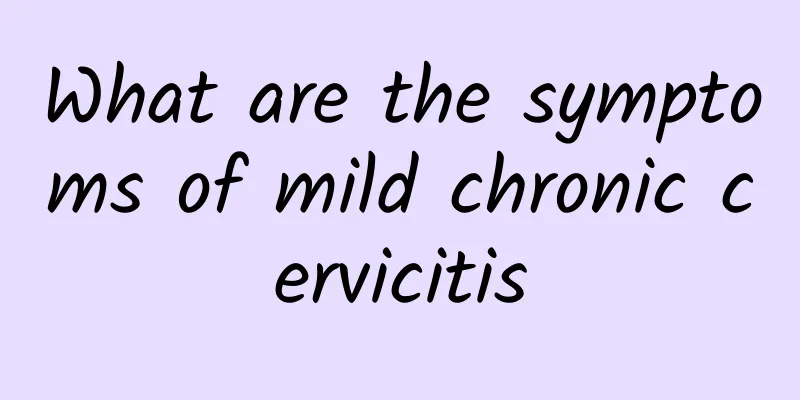Study on the relationship between infection and spontaneous abortion

|
Pregnancy is a very happy thing for every woman, but not every woman's pregnancy process is smooth sailing. Many mothers will experience miscarriage during pregnancy. There are many reasons for miscarriage. Perhaps you don’t understand the impact of infection on miscarriage. Next, the editor will give you a detailed introduction to the relationship between infection and miscarriage. Pregnant women are generally susceptible to a variety of pathogens. In recent years, the infection of female reproductive tract CT and UU has been increasing year by year, so the pathogenicity of CT and UU has also attracted much attention. However, there is no consensus among scholars on whether there is a correlation between CT and UU and miscarriage. Some scholars have conducted microbiological tests on the embryonic tissues of spontaneous abortion and artificial abortion, and believe that chlamydia or mycoplasma infection is related to the occurrence of spontaneous abortion; some studies believe that from the statistical analysis of the results, the incidence of adverse pregnancy in women with chlamydia or mycoplasma infection is not higher than that of uninfected women, so they have no trend relationship with the occurrence of spontaneous abortion. By comparing the infection of CT and UU in women with spontaneous abortion and healthy pregnant women, we found that the infection rate of CT and UU in women with spontaneous abortion increased significantly, and the difference between the two groups was significant, suggesting that CT and UU infection are related to the occurrence of spontaneous abortion. Although the mechanism of chlamydia and mycoplasma inducing inflammation and destroying tissues is still unclear, studies have shown that after chlamydia and mycoplasma infect the reproductive tract, the endometrium undergoes a chronic inflammatory response due to the infiltration of lymphocytes and macrophages, and the immune system activity and anti-pathogen cytokines produced can damage the growing embryo or interfere with embryo implantation, and may also interfere with the regulatory mechanism of the maternal immune system to protect the embryo and cause abortion. Try to eat well, sleep well, and pay attention to increasing nutrition to enhance the body's resistance to disease and promote the early repair of damaged organs. After abortion, you should eat more protein-rich foods such as fish, meat, eggs, and bean products, as well as fresh vegetables rich in vitamins to speed up your body's recovery. You should take food supplements immediately; you should not eat raw, cold, or irritating foods. If you have the conditions, you can refer to the normal postpartum diet. In addition, you should follow the taboos after childbirth in your life, do not take a bath, do not drink cold drinks, keep your clothes warm, and avoid catching a cold. |
<<: How to improve the cure rate of spontaneous abortion
>>: Relationship between infection and spontaneous abortion
Recommend
How to prevent adnexitis in summer?
Adnexitis has always been the focus of people'...
How long after a missed miscarriage can you have sex? What are the dangers of having sex too early after a missed miscarriage?
Because missed abortion is very harmful to women&...
Pituitary function tests for amenorrhea
There are many examination methods for patients w...
How to improve the cure rate of amenorrhea?
There are many ways to treat amenorrhea. Accordin...
Yoga is not only for losing weight and slimming your belly! This can reduce sarcopenia and relieve premenstrual syndrome
There are many health benefits of doing yoga. In ...
Experts teach you the secret to changing your body curves in a short time! Stimulating the back has 3 major benefits, making it easy to reduce age without any effort
The secret to changing your body curves in a shor...
How to treat chest tightness and shortness of breath during menopause? Let's take a look
If you have chest tightness or shortness of breat...
What should you pay attention to in your diet to prevent cervicitis? There are six major hazards of cervicitis in women
Cervicitis is one of the common gynecological dis...
Can sexual intercourse lead to cervical erosion? What are the hazards of cervical erosion?
In life, patients with cervical erosion are troub...
Will drinking a lot of slimming tea in cold weather help you lose weight? Famous doctors debunk 3 myths about weight loss
As the saying goes: "Lose weight in summer a...
Girls' Generation's vest line shows sexy and works hard on belly button exercises
South Korean girl group Girls' Generation rel...
What tests are needed for pelvic effusion 23MM?
Pelvic effusion is divided into physiological eff...
Brief analysis of several common symptoms of tuberculous pelvic inflammatory disease
It is very necessary for female friends to unders...
Women should be alert to pelvic inflammatory disease during the postpartum period
Women are weak after childbirth, and the cervix f...
Is the ectopic pregnancy test paper useful? It can only test whether you are pregnant
The progress and development of science and techn...









